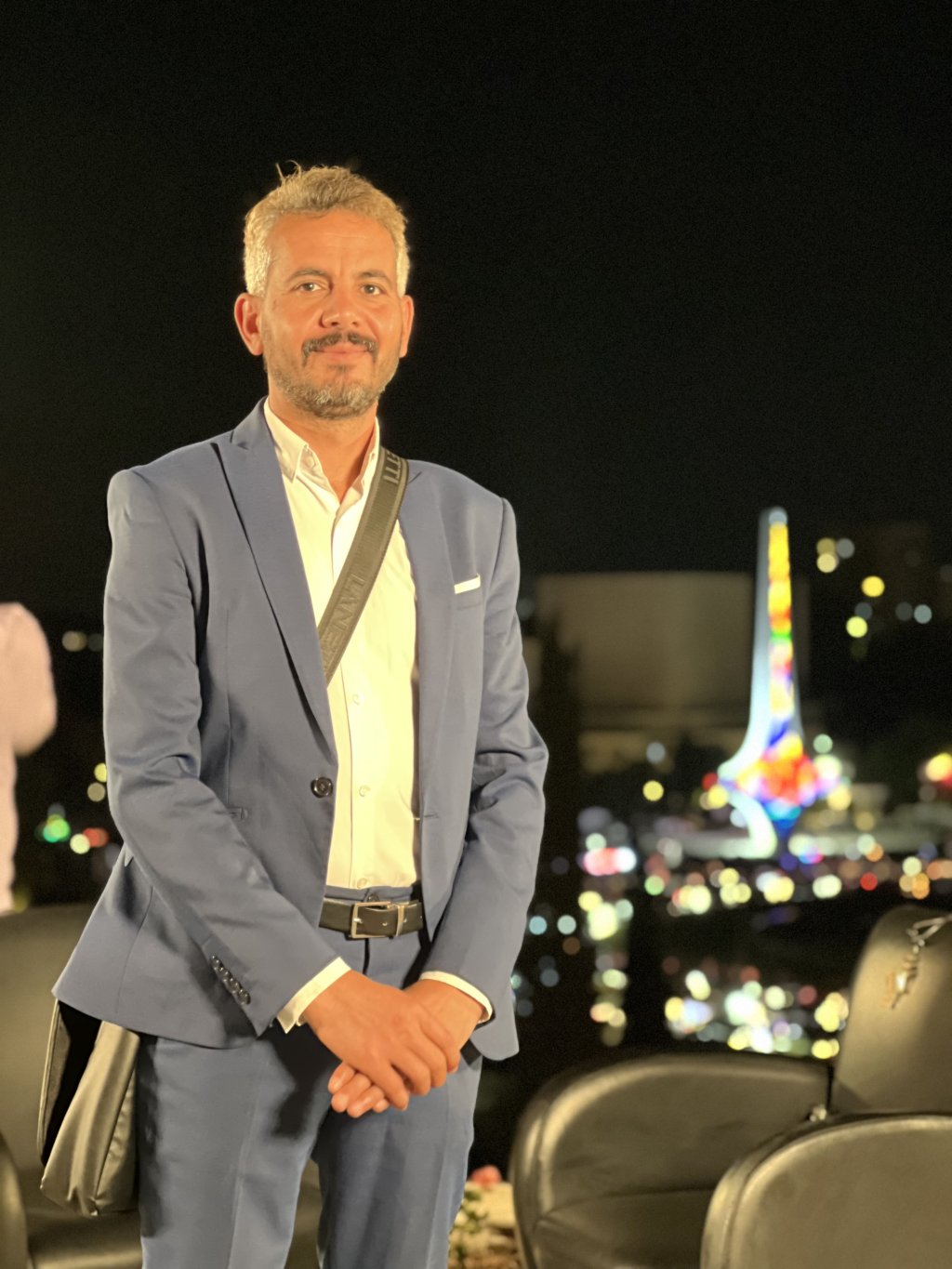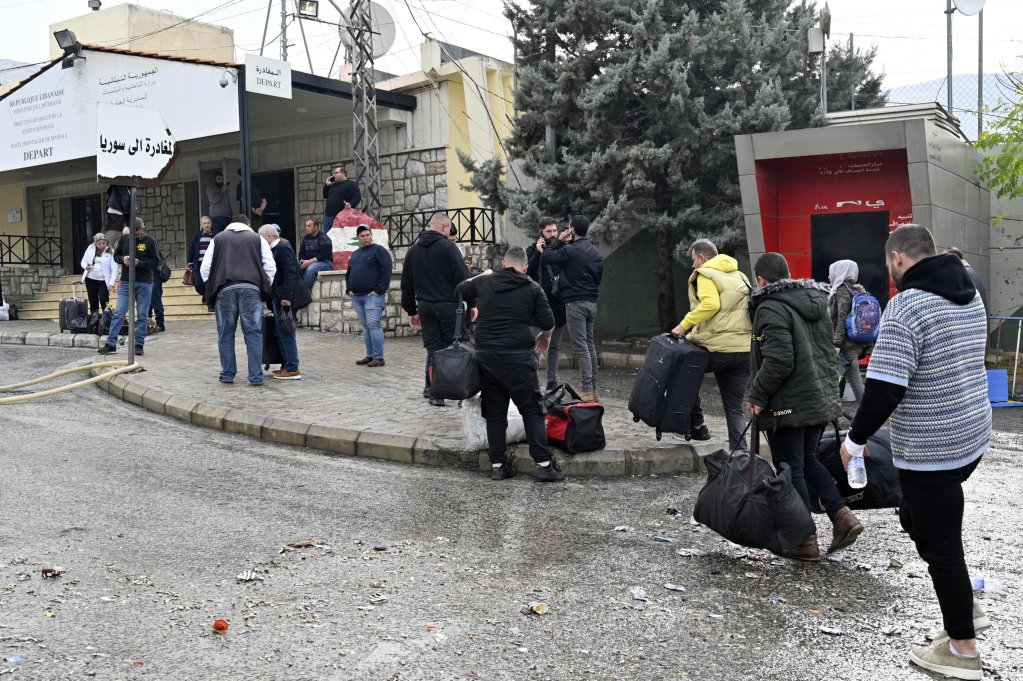Six months have passed since the fall of Bashar al-Assad’s regime, bringing an end to more than five decades of Assad family rule that left Syria devastated by war and economic collapse. Now, many Syrian refugees who rebuilt their lives abroad are faced with the difficult decision of whether to return to their country. One returnee, Mohammad Rabie, who worked as a journalist in Germany, shares his story with InfoMigrants.
This text was originally written in Arabic and published on InfoMigrants Arabic.
Despite fragile infrastructure, limited electricity, and a shortage of water, many Syrians have decided to return home rather than remain in relatively comfortable Europe, where basic needs are met and job opportunities are more abundant.
I am one of those Syrians who chose to return.
After stepping into Syria, I walked through the streets of Damascus for the first time in 13 years. The phrase “It’s time to shake off the dust of war and start rebuilding” echoed everywhere.
This sentence touched me deeply. I was also fed up with European politics and the increasingly hostile rhetoric toward foreigners in Germany. So, I made my choice to return home.
It wasn’t an easy decision. Germany and especially Berlin had become my second home. I spent ten years there, studying and working as a political journalist, covering both domestic and international affairs.
My reports focused on the war that has ravaged Syria since 2011.
Over the past months, since Friedrich Merz became Chancellor, I began to feel like I no longer belonged to Germany.
Even though I am a German citizen and Germany is part of my identity, there was a populist and divisive rhetoric spreading in society that affected me deeply.
Worse still, more than half of Germans voted for parties that openly support anti-immigrant policies.

Rise in anti-migrant rhetoric
I prefer returning to Syria -- with all its challenges like electricity shortages and limited services -- over facing the daily hostility that refugees and Muslims experience in Europe.
I strongly believe that when dignity is at stake, a person may prefer to live in a war-torn country rather than in a country where politicians show disrespect toward foreigners in general and belittle the achievements of Syrians in particular -- Syrians who have worked hard and contributed meaningfully in Germany.
I fully understand that my decision isn’t affordable for everyone. Syria is a wounded nation, its people and infrastructure devastated by years-long war.
Rents for the few livable apartments range from 100 to 1,000 euros. Thousands of Syrians still live in refugee camps. The economy remains unstable, and the road to a new Syria is long and uncertain.
Given these realities, I cannot blame anyone who chooses to stay away.
But for me, staying in Germany is no longer an option. I want to be part of the change happening in my country.
I want to contribute to rebuilding Syria. What inspires me is that, for the first time, Syrians and their leaders are at the heart of shaping the country’s future. This is a huge, unprecedented, and positive shift.

'Tired of the tax system'
In Damascus, I recently spoke with several young Syrians who, like me, decided to return.
Jalal was one of them. He told me, "I spent ten years of my life working hard in Germany, but I was never treated equally. I was only granted subsidiary protection, but not permanent residency or citizenship."
"I was also fed up with the tax system. As a self-employed man, I paid nearly 40 percent of my income in taxes. It felt like the state was taking half of the earnings from my hard work. When I had the chance to return home, I didn’t hesitate for a second. I chose to come back to Damascus."
From a legal standpoint, Jalal violated the core conditions of his asylum status in Germany by returning to Syria without notifying or receiving approval from German authorities.
The Federal Office for Migration and Refugees (BAMF) stipulates that beneficiaries of international protection may obtain a refugee passport. However, traveling to the country of origin is a different matter. It is only permissible in specific cases and may lead to the revocation of protection status.
BAMF told InfoMigrants that "an unauthorized trip to the country of origin may lead to the cancellation of protection status."
It added, "Once the BAMF becomes aware of such a case, revocation may be initiated, and a formal revocation file is opened to document the process."
However, in the case of Syria, BAMF clarified that there is currently a temporary suspension of revocation procedures, meaning such cases are not actively being processed at this time.
Some returnees have taken advantage of Germany’s voluntary return program, which offers financial support, travel expenses, and a one-time reintegration grant to help them restart their lives in Syria.
But BAMF warns: "If the individual, after receiving this grant, does not leave Germany or returns to it, the financial assistance may be reclaimed."
'Europe offers stability, Syria offers identity'
Political analyst Mahmoud Al-Tarn outlined the pros and cons of returning to Syria.
"For families in Europe with stable incomes, health insurance, and children enrolled in school, the option of returning to Syria is not realistic. Syria lacks these basic services," he told InfoMigrants.
He believes Syria’s education system remains underdeveloped, its infrastructure is fragile, and healthcare is still in a state of collapse.
"Syria does not have a healthcare system comparable to what is available in Europe," the expert said.
However, one of the positive aspects of returning home is that many Syrians have the chance to reunite with loved ones.
Mahmoud Al-Tarn sees family reunification as a major factor that could motivate Syrians to return.
"Many people choose to return simply to be with their families. This is an option worth considering for those whose asylum cases are still pending, those who couldn’t bring their relatives to Europe, or those still living in refugee camps,” he said.
But he believes this decision requires careful planning, not emotional impulse. "To make a return sustainable, Syria needs to rebuild its housing, healthcare, and education systems. These challenges must be addressed with realism, not romanticism," he added.
'Feel home'
Salem, a 39-year-old Syrian from Homs, returned from Turkey and now works in real estate in Damascus.
"In Turkey, life became increasingly difficult for Syrians. So, when I had the chance to return home, I didn’t hesitate for a second—even though Syria lacks many basic services," he said.
Salem said that the feeling of being home was a decisive factor in his decision.
“Those who still have a house in Syria are more likely to return without overthinking. But for those whose homes were destroyed, returning is much harder. Rent prices are high, construction materials are expensive, and incomes are low.”
“But the decision to return home is much tougher for people who have become used to reliable electricity, internet access, and other essential services that are still limited in Syria,” he added.

What About Investors?
Salem also highlighted the immense challenges facing investment in Syria.
“Entrepreneurs are struggling to find skilled workers. If you want to launch a new project, you’ll be shocked by the lack of qualified labor -- most of them have left the country," he said.
"Hiring skilled workers now requires full sponsorship and support. So, for the time being, the availability of highly skilled labor depends on voluntary return," he added.
Author: Mohammad Rabie
Translation: Mohamed Farhan
